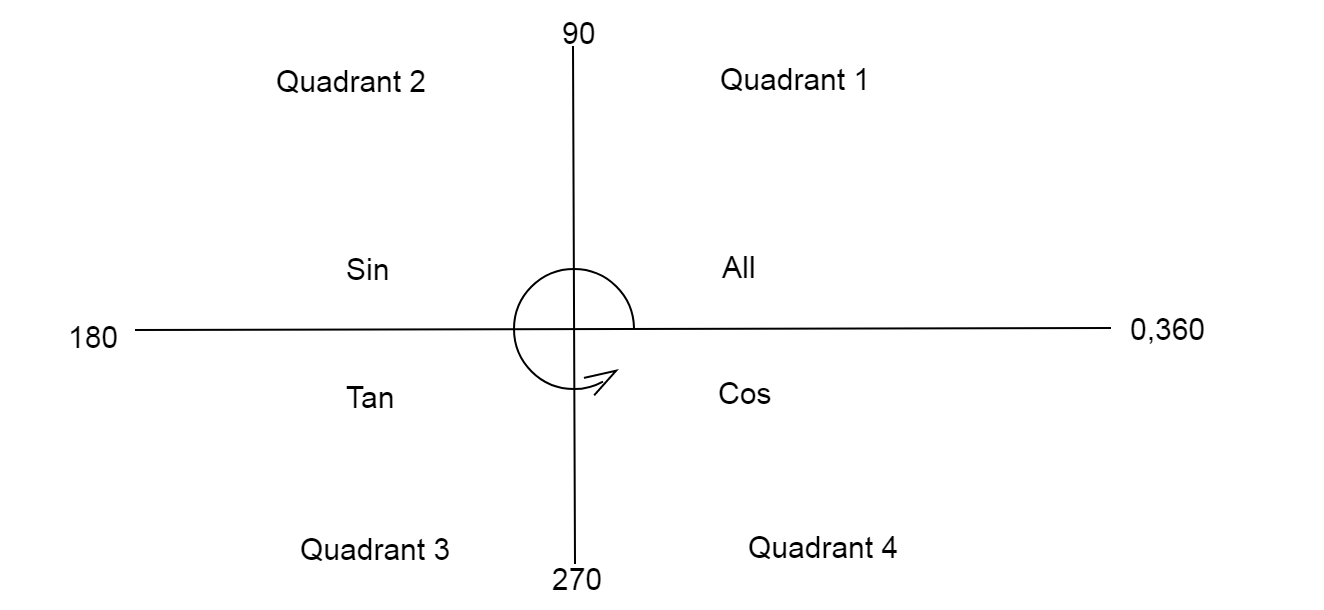Question
Question: How do you calculate\[\arccos \left( { - \dfrac{{\sqrt 3 }}{2}} \right)\]?...
How do you calculatearccos(−23)?
Solution
We use the concept that arc means inverse of the function. We are given the value of sine of an angle. Use the trigonometric identity sin2x+cos2x=1to find the value of cosine of the same angle. Divide sine of the angle by cosine of the angle to calculate tangent of the angle. Use a quadrant diagram to write the value of angle for cosine.
- Arc cosine of a function is defined as the inverse cosine of the function. When cosy=x, then we can write arccosx=cos−1x=y.
- We know the values of all trigonometric angles are positive in the first quadrant.
Values of only sinθare positive in the second quadrant.
Values of only tanθare positive in the third quadrant.
Values of onlycosθ are positive in the fourth quadrant.

Complete step-by-step answer:
Let us assume the angle as ‘x’
We are given that arccos(−23)
Since we know that arccosx=cos−1x=y
Then we can write arccos(−23)=cos−1(−23)=y
⇒cos−1(−23)=y
Take cosine on both sides of the equation
⇒cos[cos−1(−23)]=cosy
Cancel cosine and cosine inverse on left side of the equation
⇒−23=cosy … (1)
We know that the value of cos6π=23
Also, we know cosine is an even function, so, cos(−x)=−cosx and that cosine function is negative in the second and third quadrant.
We can write cos(π+6π)=2−3and cos(π−6π)=2−3
i.e. cos(66π+π)=2−3and cos(66π−π)=2−3
i.e. cos(67π)=2−3and cos(65π)=2−3
So equation (1) becomes
⇒cos(67π)=cosyand cos(65π)=cosy
Taking inverse sine function on both sides
⇒cos−1[cos(67π)]=cos−1[cosy]and cos−1[cos(65π)]=cos−1[cosy]
Cancel inverse of the function by the function
⇒y=65πand y=67π
∴ The values of arccos(−23)are 65πand 67π
Note:
Many students make mistake of calculating the angle inside cosine as positive which is wrong, the value of cosine is given negative so we will have to look at the quadrant diagram and figure out what to add or subtract the angle from. Keep in mind we can use table for trigonometric terms if we don’t remember the values at some common angles0∘,30∘,45∘,60∘,90∘
| ANGLEFUNCTION | 0∘ | 30∘ | 45∘ | 60∘ | 90∘ |
|---|---|---|---|---|---|
| Sin | 0 | 21 | 21 | 23 | 1 |
| Cos | 1 | 23 | 21 | 21 | 0 |
| Tan | 0 | 31 | 1 | 3 | Not defined |
